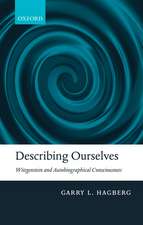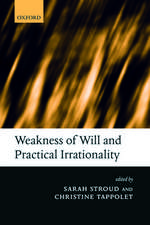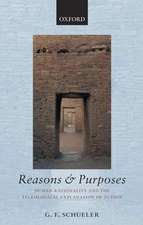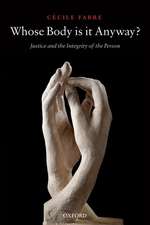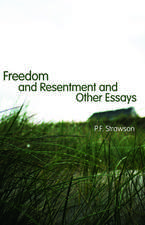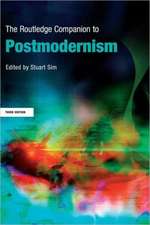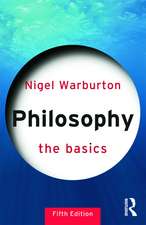Debates in Nineteenth-Century European Philosophy: Essential Readings and Contemporary Responses: Key Debates in the History of Philosophy
Editat de Kristin Gjesdalen Limba Engleză Paperback – 24 noi 2015
| Toate formatele și edițiile | Preț | Express |
|---|---|---|
| Paperback (1) | 465.40 lei 6-8 săpt. | |
| Taylor & Francis – 24 noi 2015 | 465.40 lei 6-8 săpt. | |
| Hardback (1) | 1171.54 lei 6-8 săpt. | |
| Taylor & Francis – 25 noi 2015 | 1171.54 lei 6-8 săpt. |
Preț: 465.40 lei
Preț vechi: 547.53 lei
-15% Nou
Puncte Express: 698
Preț estimativ în valută:
89.06€ • 93.17$ • 73.98£
89.06€ • 93.17$ • 73.98£
Carte tipărită la comandă
Livrare economică 02-16 aprilie
Preluare comenzi: 021 569.72.76
Specificații
ISBN-13: 9780415842853
ISBN-10: 0415842859
Pagini: 416
Dimensiuni: 152 x 229 x 23 mm
Greutate: 0.57 kg
Ediția:1
Editura: Taylor & Francis
Colecția Routledge
Seria Key Debates in the History of Philosophy
Locul publicării:Oxford, United Kingdom
ISBN-10: 0415842859
Pagini: 416
Dimensiuni: 152 x 229 x 23 mm
Greutate: 0.57 kg
Ediția:1
Editura: Taylor & Francis
Colecția Routledge
Seria Key Debates in the History of Philosophy
Locul publicării:Oxford, United Kingdom
Cuprins
Contributors, Editor's Introduction, I. Kantian Presuppositions. 1.The Reception of the Critique of Pure Reason in German Idealism, by Rolf-Peter Horstmann. 2. The Reception of the Critique of Pure Reason in German Idealism: A Response to Rolf-Peter Horstmann, by Paul Guyer. II. Fichte (1762-1814). 3. Fichte's Original Insight, by Dieter Henrich. 4. Fichte's Original Insight: Dieter Henrich's Pioneering Piece Half A Century Later, by Günter Zöller. III. Romanticism. 5. Philosophical Foundations of Early Romanticism, by Manfred Frank. 6. Response to Manfred Frank, "Philosophical Foundations of Early Romanticism", by Michael N. Forster. IV. Hegel (1770-1831). 7. From Desire to Recognition: Hegel's Account of Human Sociality, by Axel Honneth. 8. On Honneth's Interpretation of Hegel's "Phenomenology of Self-Consciousness", by Robert B. Pippin. V. Schelling (1775-1854). 9. The Nature of Subjectivity: The Critical and Systematic Function of Schelling's Philosophy of Nature, by Dieter Sturma. 10. Nature as Unconditioned? The Critical and Systematic Function of Schelling's Early Works, by Dalia Nassar. VI. Schopenhauer (1788-1860). 11. The Real Essence of Human Beings: Schopenhauer and the Unconscious Will, by Christopher Janaway. 12. Emancipation from the Will, by David E. Wellbery. VII. Comte (1798-1857). 13. Auguste Comte and Modern Epistemology, by Johan Heilbron. 14. Why Was Comte an Epistemologist?, by Robert C. Scharff. VIII. Mill (1806-1873). 15. Mill: The Principle of Liberty, by John Rawls. 16. John Rawls on Mill's Principle of Liberty, by John Skorupski. IX. Darwin (1809-1882). 17. Darwin's Theory of Natural Selection and its Moral Purpose, by Robert J. Richards. 18. Response to Richards, by Gabriel Finkelstein. X. Kierkegaard (1813-1855). 19. Kierkegaard's On Authority and Revelation, by Stanley Cavell. 20. A Nice Arrangement of Epigrams: Stanley Cavell on Søren Kierkegaard, by Stephen Mulhall. XI. Marx (1818-1883). 21. Marx's, Metacritique of Hegel: Synthesis Through Social Labor, by Jürgen Habermas. 22. Epistemology and Self-Reflection in the Young Marx, by Espen Hammer. XII. Dilthey (1833-1911). 23. Wilhelm Dilthey after 150 Years (Between Romanticism and Positivism), by Hans-Georg Gadamer. 24. Gadamer on Dilthey, by Frederick C. Beiser. XIII. Nietzsche (1844-1900). 25. Nietzsche's Minimalist Moral Psychology, by Bernard Williams. 26. Naturalism, Minimalism, and the Scope of Nietzsche's Philosophical Psychology, by Paul Katsafanas. XIV. Freud (1856-1939). 27. Bad Faith and Falsehood, by Jean-Paul Sartre. 28. Freud, by Sebastian Gardner. XV. Twentieth-Century Developments. 29. Analytic and Conversational Philosophy, by Richard Rorty. 30. Not Knowing What the Right Hand is Doing: Rorty's "Ambidextrous" Analytic Redescription of Nineteenth-Century Hegelian Philosophy, by Paul Redding. References for Republished Texts.
Notă biografică
Kristin Gjesdal is Associate Professor of Philosophy at Temple University. Her work covers the areas of post-Kantian philosophy (especially hermeneutics and phenomenology), aesthetics, and enlightenment thought. She is the author of Gadamer and the Legacy of German Idealism (2009) and the editor (with Michael Forster) of The Oxford Handbook to German Philosophy in the Nineteenth Century (2015).
Recenzii
"This is a superb volume with outstanding contributions by the very top scholars of German Idealism and nineteenth century philosophy. The inclusion of three generations of scholars in this collection makes it a truly admirable achievement and asset."
Yitzhak Y. Melamed, Johns Hopkins University, USA
'Should philosophy be systematic or should it be focused on discrete puzzles? Historical or argumentative? Continental or analytic? This volume shows compellingly that in every case the answer is "both."'
Richard Eldridge, Swarthmore College, USA
'This highly recommended volume is original in its conception and impressive in its execution. The pairing of classical interpretations with reactions by top current philosophers is excellently done. Specialists and students alike will benefit from this outstanding collection of seminal discussions of leading figures from Kant through Freud.'
Karl P. Ameriks, University of Notre Dame, USA
Yitzhak Y. Melamed, Johns Hopkins University, USA
'Should philosophy be systematic or should it be focused on discrete puzzles? Historical or argumentative? Continental or analytic? This volume shows compellingly that in every case the answer is "both."'
Richard Eldridge, Swarthmore College, USA
'This highly recommended volume is original in its conception and impressive in its execution. The pairing of classical interpretations with reactions by top current philosophers is excellently done. Specialists and students alike will benefit from this outstanding collection of seminal discussions of leading figures from Kant through Freud.'
Karl P. Ameriks, University of Notre Dame, USA
Descriere
Debates in Nineteenth-Century European Philosophy offers an engaging and in-depth introduction to the philosophical questions raised by this rich and far reaching period in the history of philosophy. Throughout thirty chapters (organized into fifteen sections), the volume surveys the intellectual contributions of European philosophy in the nineteenth century, but it also engages the on-going debates about how these contributions can and should be understood. As such, the volume provides both an overview of nineteenth-century European philosophy and an introduction to contemporary scholarship in this field.







